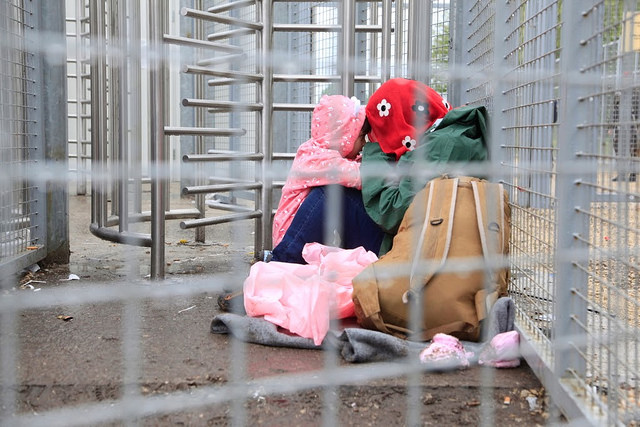The Council of Europe’s expert group on human trafficking have expressed concern at the lack of efforts being made to identify victims of trafficking amongst the asylum seekers and irregular migrants in Hungary.
In a report released last week, the Council of Europe’s Group of Experts on Action against Trafficking in Human Beings (GRETA) describe the situation witnessed during recent visits to the transit zones situated along the border between Hungary and Serbia. Normal Hungarian asylum procedure has been suspended ever since a national ‘state of crisis due to mass migration’ was introduced in 2015, meaning that all asylum seekers must apply for international protection from these transit zones.
Hungary remains party to the Council of Europe Convention on Action against Trafficking in Human Beings, and is obliged to put in place suitable safeguards for the identification and protection of trafficking victims. The GRETA delegation, which monitors compliance with this convention, found that most staff working in transit zones could not explain what procedures would be followed or name the competent authorities for decisions on victim identification and referral. The report highlighted that “the transit zones themselves do not create an atmosphere of trust, which would make it possible for victims of trafficking to come forward and discuss their situation.”
GRETA also expressed profound concern about children in the transit zones. The Hungarian authorities define those aged 14-17 as adults, and do not place them under the normal child protection system. The Convention contains specific obligations for states to reduce children’s vulnerability to trafficking by placing them in a ‘protected environment’, which is sorely lacking in the transit zones. GRETA referred to a report released last summer by another Council of Europe body, the Lanzarote Committee for the protection of children against sexual abuse and exploitation, which raised concerns that children in the Hungarian transit zones were at risk of being asked for sexual favours in order to be moved up the waiting list and enter Hungary, or receive more food from distributors.
Another major concern in the report is the persistence of collective expulsions, with as many as 79 cases of expulsions of irregular migrants to Serbia found to have taken place in a period of less than two weeks in December 2017. The particular vulnerability of asylum seekers and irregular migrants to human trafficking means that these expulsions carry a high risk of neglecting victims, as they are carried out with no pre-removal risk assessment.
The ‘state of crisis due to mass migration’ that was introduced by the Hungarian leader Viktor Orbán in September 2015 has been extended in six-month increments ever since, and is currently in place until September 2018. Last week the Hungarian government offered a symbolic gift of 25 kilometres of barbed wire to the government of Montenegro, to be placed along the state border ‘with the aim of better preparedness of Montenegro for the possible higher inflow of migrants through our territory.’
For further information:
- AIDA, Country Report Hungary: 2017 Update, March 2018
Photo: (CC) Rebecca Harms, May 2016
This article appeared in the ECRE Weekly Bulletin . You can subscribe to the Weekly Bulletin here.

